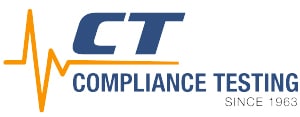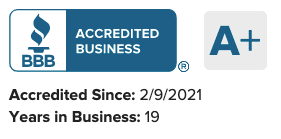Espressif is a popular manufacturer of microcontrollers that allow for the addition of Wi-Fi and Bluetooth connectivity. If you’re making an electronic device, it’s very likely that you’ve used or are considering using an Espressif module for its networking and connectivity.
Thanks to their low power consumption, high level of integration and robust design, Espressif modules and SoCs are widely used throughout the industry.
One common question we receive about devices that use Espressif modules is what the FCC testing and compliance process looks like.
Espressif modules are already FCC certified, meaning they’ve passed lab testing and received a grant of equipment authorization from the FCC. However, if you use an Espressif module for your device, you’ll still need to complete testing and receive FCC equipment authorization.
Below, we’ve covered everything you need to know about Espressif modules and FCC testing and compliance, including:
- Which Espressif modules and SoCs are FCC certified.
- What you’ll need to do if your device includes an Espressif module.
- How to get FCC authorization for your Espressis-based device.
To learn more, continue reading below. If you’d like to talk to our team about FCC testing and compliance, or if you’d like to request a quote for getting certification for your device, you can contact us online or call us at 866-540-5287.
What Are Espressif Modules?
Espressif modules are compact, integrated circuits that typically incorporate a microcontroller chip, memory and components for wireless communication. They’re designed to easily fit into other electronic products to provide connectivity and smart functionality.
Are Espressif SoCs and Modules FCC Certified?
Yes, Espressif SoCs and modules are FCC certified. These devices have completed lab tests, received equipment authorization from the FCC, and as such are certified under the FCC Part 15 regulations.
Espressif provides a full list of compliance documentation for all products, including individual device FCC IDs, in the support section of its website.
List of FCC Certified Espressif Modules
As of April 2024, the following Espressif modules and SoCs have been certified by the FCC:
- ESP32-C6-MINI-1U
- ESP32-C6-WROOM-1U
- ESP8684-MINI-1U
- ESP32-H2-MINI-1
- ESP32-C6-MINI-1
- ESP32-C6-WROOM-1
- ESP32-S2-MINI-2U
- ESP32-S2-MINI-2
- ESP8685-WROOM-04
- ESP32-C3-WROOM-02U
- ESP8684-WROOM-02UC
- ESP8685-WROOM-05
- ESP8685-WROOM-07
- ESP8684-WROOM-02C
- ESP32-S2-SOLO-2U
- ESP8685-WROOM-04
- ESP32-MINI-1U
- ESP8684-MINI-1
- ESP32-S2-SOLO-2
- ESP32-C3-WROOM-02
- ESP32-S3-WROOM-1U
- ESP32-C3-MINI-1U
- ESP8685-WROOM-03
- ESP32-S3-WROOM-2
- ESP32-S3-MINI-1
- ESP32-PICO-MINI-02
- ESP32-PICO-MINI-02U
- ESP32-S3-WROOM-1
- ESP32-WROOM-DA
- ESP32-C3-MINI-1
- ESP32-MINI-1
- ESP32-S2-MINI-1
- ESP32-S2-MINI-1U
- ESP32-WROOM-32SE
- ESP32-PICO-V3-ZERO
- ESP32-WROOM-32UE
- ESP32-WROVER-E
- ESP32-WROVER-IE
- ESP32-WROOM-32E
- ESP32-S2-WROOM
- ESP32-S2-WROOM-I
- ESP32-S2-WROVER
- ESP-EYE
- ESP32-WROVER-B
- ESP32-WROVER-IB
- ESP32-WROOM-32D
- ESP32-SOLO-1
- ESP-WROOM-32
- ESP32-WROOM-32D
- ESP32-WROOM-32U
- ESP32-PICO-KIT
- ESP-WROOM-02U
- ESP32-WROVER FCC
- ESP-WROOM-02
- ESP-WROOM-S2
Do Devices That Use Espressif Modules Need FCC Testing?
Even though Espressif modules are FCC certified components, you’ll still need to complete lab testing for your device to verify that it functions within the requirements set under FCC Part 15 before going to market.
This is because the FCC rules state that the final product (in this case, a device that contains a pre-certified Espressif module) needs to demonstrate that it operates in compliance with Part 15 rules in order to receive equipment authorization.
Using a pre-certified module in a device, including a device with only minor changes, can alter the device’s electromagnetic compatibility (EMC). Put simply, although the Espressif module is certified, using it in your device may change its electromagnetic emissions and performance.
For example, your device’s radiated emissions, conducted emissions and level of immunity to electromagnetic interference may exceed those of the Espressif module you use internally for Wi-Fi and/or Bluetooth communication.
Declaration of Conformity vs. FCC Certification
The FCC provides two procedures for receiving equipment authorization. The first, referred to as a Supplier’s Declaration of Conformity (SDoC), involves testing your device to verify that it operates within the FCC limits, then self-declaring that it complies with the Part 15 rules.
The Supplier’s Declaration of Conformity procedure is typically used for unintentional radiators, which are devices that are not designed specifically to produce radio frequency emissions as a part of their normal operation.
The Declaration of Conformity procedure is often possible for devices that employ pre-approved modules such as Espressif ESP32 and similar, as these modules already have an existing form of authorization from the FCC.
The other procedure, FCC certification, is more extensive and is typically required for devices that intentionally emit radio frequency energy (intentional radiators). You can learn more about certification for FCC Part 15 using our FCC certification process guide.
The optimal procedure for your device will depend on its design, choice of components, and its purpose. If you’re not sure which procedure applies to your device, you can contact our team to ask your questions and receive answers from our compliance specialists.
How to Get FCC Authorization for Your Espressif-Based Device
If you’re planning to market your Espressif-based device, you’ll need to receive FCC equipment authorization before doing so in the United States. This is usually a straightforward process that involves the following steps:
- Conduct pre-compliance testing. Although not essential, it may help to conduct early testing while designing your device. Pre-compliance testing can help you identify EMC issues early and may reduce your risk of failing lab testing later in the process.
- Work with a testing lab to formally test your device. Once your device is finished and its design finalized, you’ll need to conduct testing with an accredited lab. The amount of tests and specific testing process will vary based on your device and authorization type.
- Complete paperwork for FCC authorization. If your device passes testing, you’ll next need to prepare paperwork for your SDoC or certification application. Our team can take care of this step for you after receiving your device manual and other documentation.
Depending on your device type, the next steps may involve preparing your SDoC or submitting your documentation to a Telecommunication Certification Body (TCB).
After receiving equipment authorization from the FCC, you’ll affix the FCC mark to your device and its packaging. Our guide to the FCC’s labeling requirements covers the basics of what you will need to know about properly labeling your device, its manual and other packaging.
Feel free to contact us if you have any questions about the testing and equipment authorization process, or any other aspects of FCC regulatory compliance for electronic devices.
Get Help With FCC Certification for Your Espressif-Based Device
If you’re developing a device that uses an Espressif module and need help completing testing and FCC certification, we’re here to help. Our experienced team of engineers has successfully tested hundreds of Espressif-based devices and received FCC equipment authorization.
As an ANSI-accredited testing laboratory and TCB, we can assist you with the entire FCC, CE and ISED testing and certification process.
To talk to our engineers about your project, request a free quote for testing and compliance, or ask us any questions you may have, contact us online or call us at 866-540-5287.



